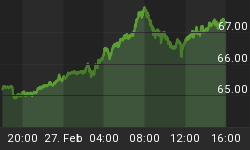Last December I pointed out that AMS (Austrian definition of the money supply*) had peaked in June 2009, even as the monetary base accelerated, and that this must mean that bank deposits are not expanding. The result would be "an inadvertent 'monetary tightening' that will have a detrimental impact on economic activity" which the fall in capital orders appeared to indicate. This now seems to be the case with the latest survey showing the demand for capital goods (plant and machinery) still falling.
Ambrose Evans-Pritchard of the London Telegraph noted that since the beginning of the year bank lending has dropped by $100 billion, an annual decline of nearly 16 per cent. This is of major importance because the banking system is the principal source of credit. (US bank lending falls at fastest rate in history). He also noted that the broad money measure M3 had been contracting at the rate of 5.6 per cent during the previous three months, signalling, according to some market observers, an impending deflation.
M3, however, is not a true monetary measure because it includes credit instruments. Money is first and foremost a medium of exchange. Therefore anything that has to be sold to obtain money cannot by definition be money, including certificates of deposits. It was not the contraction in M3, beginning about last November, that indicated a fall in bank lending but the contraction in AMS that started in the preceding June. This sequence was to be expected once we realise that a persistent fall in bank deposits must eventually lead to a drop in the demand for credit instruments. It must now follow that rather than being a cause of an economic contraction the reduction in M3 in fact a symptom of a contraction in bank deposits.
The US economy is now in a situation that is unique in its monetary history: a massive and totally unprecedented expansion in its monetary base followed by a contraction in bank deposits. I must admit that in my humble opinion only an utterly incompetent Democratic administration could pull off a stunt like this. Defenders will immediately blame the banks, arguing that they are not lending. But they are not lending because firms are not demanding loans. While Democrats shed crocodile tears about people who claim they are forced wear their dead relatives dentures they are nevertheless are unable to find scores of businesses unjustly denied bank funding. The truth is that banks will always lend if they are assured of a return. In fact, if there is a boom it appears they will even lend when no return is assured.
That Commercial and industrial loans are currently dropping at an annual rate of about 16 to 17 per suggests to some in the commentariat that the money supply needs to be loosened up further if a depression is to be avoided. It has yet to occur to them that the drop might have something to do with firms paying off debt and shelving plans for expansion rather than the banks refusing to lend. Firms operate on a little thing called a profit margin. When this margin disappears so do jobs, investments and the demand for loans.
Now expectations play a crucial role in making investment decisions. However, expectations are also partly shaped by uncertainty. Therefore the greater the degree of uncertainty of success regarding a business decision the higher will be the return that potential investors demand. Sometimes the uncertainty is so great no amount of promises will separate investors from their money.
However, the role that political uncertainty plays in frustrating investments and job creation are generally overlooked. It is bad enough that Americans have to deal with the consequences of the Fed's monetary mismanagement that generated a boom-and-bust situation that still afflicts them they must now deal with awful political uncertainty that the Democrats have created.
In a sense, America is indeed having a rerun of the 1930s but not in the way most critics believe.
*There are some differences among Austrians as to what ought to be included in a definition of the money supply. I try adhere to Walter Boyd's view who in his open letter to Prime Minister Pitt in 1801 defined money in the following terms:
By the words 'Means of Circulation', 'Circulating Medium', and 'Currency', which are used almost as synonymous terms in this letter, I understand always ready money, whether consisting of Bank Notes or specie, in contradistinction to Bills of Exchange, Navy Bills, Exchequer Bills, or any other negotiable paper, which form no part of the circulating medium, as I have always understood that term. The latter is the Circulator; the former are merely objects of circulation. (Walter Boyd, A Letter to the Right Honourable William Pitt on the Influence of the Stoppage of Issues in Specie at the Bank of England, on the Prices of Provisions, and other Commodities, 2nd edition, T. Gillet, London, 1801, p. 2).
In simple terms, money is the medium of exchange. Nevertheless, difficulties do arise. Are savings deposits money? This presents the problem of double-counting. If I take $10,000 in cash and deposit it in my savings account it cannot be seriously I argued that I have now expanded the money supply by $10,000. It therefore follows that if the bank lends out that $10,000 the money supply still remains unchanged. We now deduce that credit transactions do not alter the money supply. Whether we include savings deposits in our definition depends on whether or not it involves double-counting.















